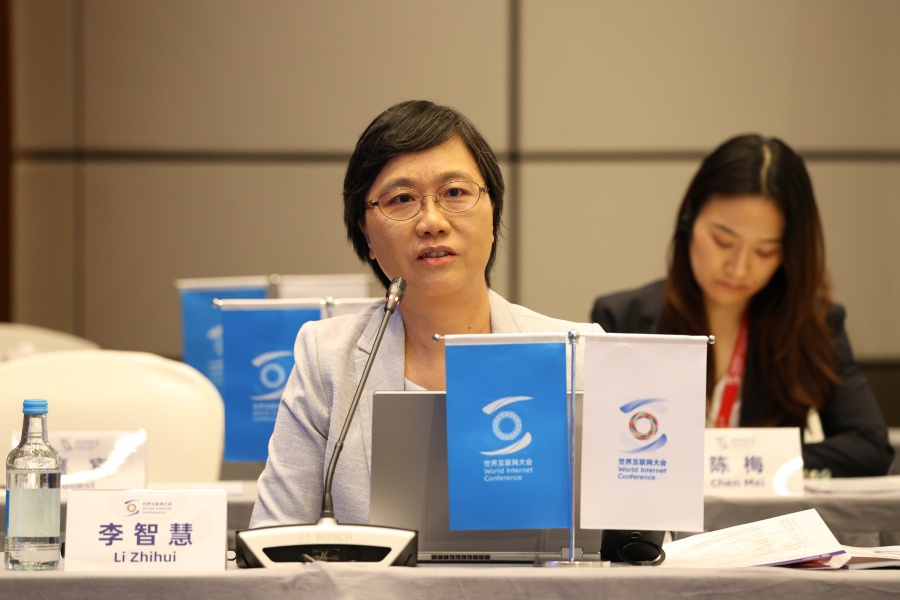
- Home
- Media Center
-
Events
- Wuzhen Summit
- Regional Forums
- Practice Cases of Jointly Building a Community with a Shared Future in Cyberspace
- World Internet Conference Awards for Pioneering Science and Technology
- The Light of Internet Expo
- Straight to Wuzhen Competition
- Global Youth Leadership Program
- WIC Distinguished Contribution Award
- Membership
- Research & Cooperation
- Digital Academy
-
Reports
- Collection of cases on Jointly Building a Community with a Shared Future in Cyberspace
- Collection of Shortlisted Achievements of World Internet Conference Awards for Pioneering Science and Technology
- Reports on Artificial Intelligence
- Reports on Cross—Border E—Commerce
- Reports on Data
- Outcomes of Think Tank Cooperation Program
- Series on Sovereignty in Cyberspace Theory and Practice
- Other Achievements
- About WIC
- 中文 | EN

Workshop on AI Governance and Sustainable Development|Li Zhihui highlights need for international consensus on AI governance

Li Zhihui, head of China Innovation Research at Japan's Nomura Research Institute, speaks at the Workshop on AI Governance and Sustainable Development of the 2025 World Internet Conference Asia-Pacific Summit in Hong Kong on April 14. [Photo/wicinternet.org]
A lack of global consensus on governance rules could lead to a fragmented artificial intelligence (AI) ecosystem, said Li Zhihui, head of China Innovation Research at Japan's Nomura Research Institute, at the "AI Governance and Sustainable Development: for Good and for All" Workshop held during the 2025 World Internet Conference Asia-Pacific Summit in Hong Kong on April 14. She urged stronger international cooperation to ensure sustainable AI development.
Speaking at the workshop, Li highlighted the growing risks posed by AI, including spread of misinformation and AI-powered scams through deepfake technology, which have prompted governments worldwide to accelerate formulation of AI governance rules.
She said Japan has established a dedicated agency in February 2024 to coordinate AI safety research, evaluation methods and standard-setting, while working with international counterparts to promote consensus.
Without mutual trust among nations regarding AI systems developed by other countries, invisible barriers may emerge that could hinder cross-border provision of AI products and services, Li said, adding evaluation of foreign AI services not only brings technical costs but also imposes significant financial and human resource burdens, ultimately reducing productivity.
She suggested that, in an increasingly complex global landscape, countries should work together to build consensus through bilateral and multilateral regulations, as well as international rules, to advance AI governance.

The World Internet Conference (WIC) was established as an international organization on July 12, 2022, headquartered in Beijing, China. It was jointly initiated by Global System for Mobile Communication Association (GSMA), National Computer Network Emergency Response Technical Team/Coordination Center of China (CNCERT), China Internet Network Information Center (CNNIC), Alibaba Group, Tencent, and Zhijiang Lab.





